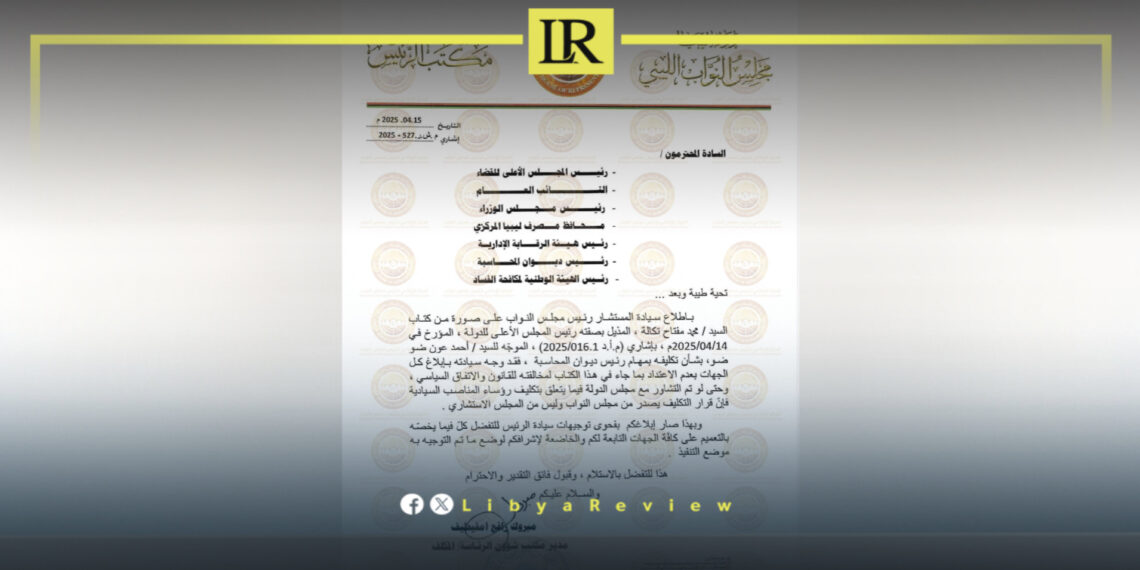On Tuesday, Libya’s House of Representatives (HoR) rejected the decision by the head of the High Council of State, Mohamed Takala, to appoint Ahmed Aoun Dhou as the new head of the Audit Bureau, declaring the move legally invalid and politically unauthorized.
In a statement released Tuesday by the Acting Director of the Office of Presidential Affairs, Mabrouk Maqiteef, the HoR stated that it had reviewed the letter issued by the High Council of State on April 14, 2025.
The Parliament emphasized that, in accordance with Libyan law and the terms of the political agreement signed between the two bodies, the authority to appoint sovereign positions lies solely with the House of Representatives, even when consultations with the High Council of State occur.
The statement called on all national institutions and government entities to disregard the contents of Takala’s letter, stressing that such unilateral actions are outside the bounds of the legal and constitutional framework.
“The appointment of sovereign positions, including the leadership of oversight bodies such as the Audit Bureau, is a responsibility exclusive to the House of Representatives,” the statement said. “Any attempt to bypass this process is unlawful and cannot be acted upon.”
This latest development underscores the growing institutional tension between the eastern-based Parliament and the Tripoli-based High Council of State, as both bodies continue to dispute control over Libya’s sovereign and oversight institutions—bodies that include the Central Bank, the Audit Bureau, the Administrative Control Authority, and the Supreme Court.
Libya has remained politically divided since the collapse of the unified transitional roadmap initially endorsed by the international community in 2021. That roadmap aimed to bring an end to the country’s long-running institutional split by holding national elections.
However, repeated delays, constitutional disagreements, and rival interpretations of the political agreement have sustained a divided executive and legislative system, with competing claims to legitimacy from Tripoli and eastern Libya.


